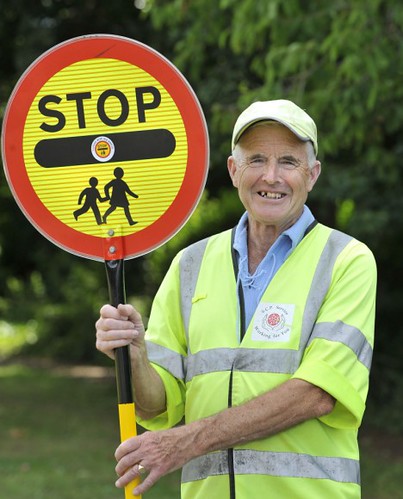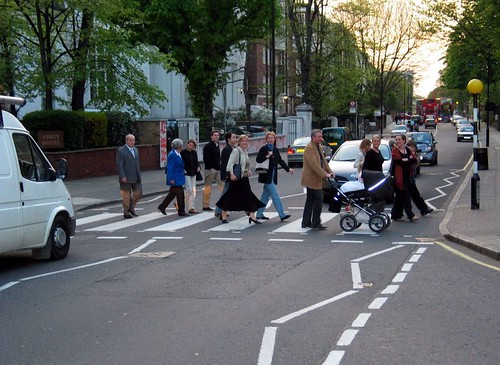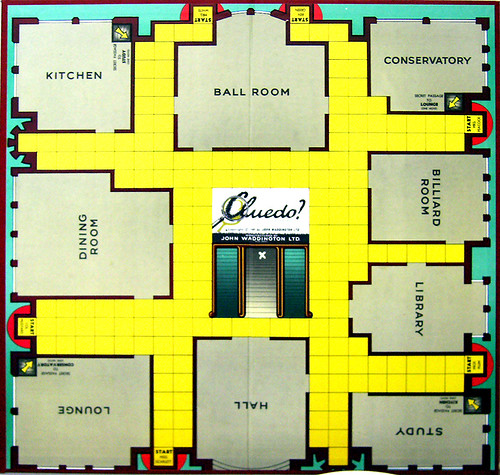Honestly, I’m having a bit of trouble thinking of things to blog about these days, so I hope you won’t think it’s a cop-out to give you a bit more local lingo to chew over with your morning coffee. And if you do mind, well, too bad. It’s my blog, and I’ll make it boring if I want to. Today it seems we’re concentrating on somewhat more poetic words for otherwise mundane things (with a few mundane things thrown in too).
fairy cakes = cupcakes! This is so much better a word than cupcakes that I think the entire English-speaking world should adopt it right now. I mean what would you rather have – a cake that comes from a cup, or a cake that comes from fairies?
fairy lights = twinkie lights. Those strings of tiny lights you put on a Christmas tree, or hang up on the patio.
gubbins = an excellent word that occupies a similar place in my mind as “faffing about” but to do with things as opposed to actions. Gubbins are bits and pieces or add-ons, or general clutter, often more specifically the inner workings of something. As in “We’re moving house at the end of the month and I just have no idea what I’m going to do with all this gubbins!” Or: “Henry spent the whole afternoon in the garden shed faffing about in the gubbins of our old telly.”
telly = television. Normally said without a trace of irony or sense of how unbearably English it is to say “telly” when you mean tv.
vest = a sleeveless undershirt of the type sometimes referred to in North America (rather distastefully) as a “wife-beater.” Not at all poetic, but this is apparently the completely normal word for this type of garment, as was brought home to me was I was working on a crossword puzzle with Patrick (the Crossword Tutor) and, unbeknownst to me, the answer was “vest”. At first Patrick couldn’t understand why I didn’t get the answer immediately, and then he kept trying to give me hints like this:
This happens every once in a while. I’ll be having a perfectly normal conversation with someone and they’ll use a perfectly normal word but in a completely unknown way. Imagine sitting at your desk and having a colleague ask you to pass them the carburetor. Your mind races… carburetor… carburetor… what’s that one again? And again they say “The carburetor, right there, next to your elbow.” And you look at the spot next to your elbow and you think the only thing here is a stapler, and you say, “Do you mean this stapler?” And they say “Yes, yes, the carburetor, hand it over.” And you think “These people are all mad.” And then you hand over the carburetor and you think “I definitely have to blog about this.”
(Totally unrelated aside: the word “carburetor” appear in the above paragraph six times. And I did not spell it correctly once in those five times, even after I allowed spell-check to show me how to spell carburetor.) (I also got it wrong both times in this aside.)
Lollipop man = crossing guard. Again, how cute is that? They’re called lollipop men (or women) because they carry a round stop sign on a pole that looks like a giant lollipop. The popular image of a Lollipop man is a grey-haired gentleman of retirement age who plays a sort of benevolent, grandfatherly role. Like John Hunter of Edinburgh, who was a Lollipop man for 10 years and was popular with the kids for high-fiving them and sometimes giving out sweets. That is, until a parent complained about the health and safety risks of him high-fiving the kids and he was asked to stop. It’s elfin safety gone mad, I tells ya.
Zebra Crossing (pronounced ZEB-ruh, not ZEEB-ruh. It rhymes with Deborah) = crosswalk. You know, the ones with alternating dark and light stripes painted on the road, like a zebra? It makes perfect sense, and it’s fun, so why wouldn’t you call it something lovely like a zebra crossing? (Let’s set aside for the moment the fact there could possibly be some confusion about whether or not one might have to be wary of actual zebras in the zebra crossing. Though of course the last native English zebra was killed, stuffed and mounted in the dining hall at Eton in 1883.)
Sleeping Policeman = speed bump. Literally those raised bits of pavement they put down in residential areas to force you to slow down lest you leave your muffler scattered in pieces through the streets of Lesser Wortstable-on-the-Snorfy. I’m telling you, these people have a way with words. (And place names, but that is definitely another post)
Cluedo (pronounced “CLEW dough”) = Clue, the board game. Apparently this is the original name of the game, which was developed in England in 1949. The name is a play on the name of a traditional English game called “Ludo”, on which the layout of the board is based. This is another one of those carburetor things. When I ask about why it’s called “Cluedo” and not simply “Clue” people say, “Well I suppose it’s because of “Ludo” isn’t it?” and what I think is “Ludo? What the…?” and what I say is “Suuuuuuure it is…” And then I back away slowly.
naff = nerdy, uncool, embarrassing, out of fashion, tacky, etc. Basically, any parent of a teenager is naff.
torch = flashlight. Again, I think this is sort of charming. It’s like they’ve been around for so long over here and they’ve gone through so many iterations of the handheld light source that they just can’t be arsed to think up a different word every time something new comes along. It’s like the guy whose job it was to name the thing was thinking, “Damnit, 'torch’ worked fine in the 11th century. Why do we need a new word just because the blasted thing’s got a battery?”
“Can’t be arsed” = “Can’t be bothered”. Or: to be disinclined to get off one’s arse. (And yes, it’s definitely your arse, not your ass.) As in: “I would really love a curry right now, but I just can’t be arsed to go all the way to the Indian takeaway.” Or, more likely: “I would really love a curry right now, but I just can’t be arsed to reach for the phone to order it.”
And that, loyal readers, is all I’ve got for you today. Because it’s late on a Sunday night, and I’ve got to be at work early tomorrow and really, I just can’t be arsed…
fairy cakes = cupcakes! This is so much better a word than cupcakes that I think the entire English-speaking world should adopt it right now. I mean what would you rather have – a cake that comes from a cup, or a cake that comes from fairies?
 |
| See, they’re even sprinkled with fairy dust! |
gubbins = an excellent word that occupies a similar place in my mind as “faffing about” but to do with things as opposed to actions. Gubbins are bits and pieces or add-ons, or general clutter, often more specifically the inner workings of something. As in “We’re moving house at the end of the month and I just have no idea what I’m going to do with all this gubbins!” Or: “Henry spent the whole afternoon in the garden shed faffing about in the gubbins of our old telly.”
telly = television. Normally said without a trace of irony or sense of how unbearably English it is to say “telly” when you mean tv.
vest = a sleeveless undershirt of the type sometimes referred to in North America (rather distastefully) as a “wife-beater.” Not at all poetic, but this is apparently the completely normal word for this type of garment, as was brought home to me was I was working on a crossword puzzle with Patrick (the Crossword Tutor) and, unbeknownst to me, the answer was “vest”. At first Patrick couldn’t understand why I didn’t get the answer immediately, and then he kept trying to give me hints like this:
Patrick: It’s a kind of undergarment.And so on.
Me: An undershirt.
Patrick: Yes, but what else would you call that?
Me: An undershirt.
Patrick: No no, what’s the other word for a shirt you wear under another shirt?
Me: An undershirt.
This happens every once in a while. I’ll be having a perfectly normal conversation with someone and they’ll use a perfectly normal word but in a completely unknown way. Imagine sitting at your desk and having a colleague ask you to pass them the carburetor. Your mind races… carburetor… carburetor… what’s that one again? And again they say “The carburetor, right there, next to your elbow.” And you look at the spot next to your elbow and you think the only thing here is a stapler, and you say, “Do you mean this stapler?” And they say “Yes, yes, the carburetor, hand it over.” And you think “These people are all mad.” And then you hand over the carburetor and you think “I definitely have to blog about this.”
(Totally unrelated aside: the word “carburetor” appear in the above paragraph six times. And I did not spell it correctly once in those five times, even after I allowed spell-check to show me how to spell carburetor.) (I also got it wrong both times in this aside.)
Lollipop man = crossing guard. Again, how cute is that? They’re called lollipop men (or women) because they carry a round stop sign on a pole that looks like a giant lollipop. The popular image of a Lollipop man is a grey-haired gentleman of retirement age who plays a sort of benevolent, grandfatherly role. Like John Hunter of Edinburgh, who was a Lollipop man for 10 years and was popular with the kids for high-fiving them and sometimes giving out sweets. That is, until a parent complained about the health and safety risks of him high-fiving the kids and he was asked to stop. It’s elfin safety gone mad, I tells ya.
 |
| Not John Hunter of Edinburgh. (Apparently the black strip on the sign is for recording, with chalk, the license plates of motorists who do not stop. Under UK law it’s an offence to fail to stop when signaled by a Lollipop person. Lollipoppers often stand at zebra crossings.) |
 |
| The world’s most famous zebra crossing, at Abbey Road |
Cluedo (pronounced “CLEW dough”) = Clue, the board game. Apparently this is the original name of the game, which was developed in England in 1949. The name is a play on the name of a traditional English game called “Ludo”, on which the layout of the board is based. This is another one of those carburetor things. When I ask about why it’s called “Cluedo” and not simply “Clue” people say, “Well I suppose it’s because of “Ludo” isn’t it?” and what I think is “Ludo? What the…?” and what I say is “Suuuuuuure it is…” And then I back away slowly.
 |
| The original 1949 board layout. In the UK version the green piece is “Reverend Green”, not “Mr. Green”. And the victim is “Mr. Black” not “Mr. Boddy”. And of course it’s a spanner, not a wrench. |
torch = flashlight. Again, I think this is sort of charming. It’s like they’ve been around for so long over here and they’ve gone through so many iterations of the handheld light source that they just can’t be arsed to think up a different word every time something new comes along. It’s like the guy whose job it was to name the thing was thinking, “Damnit, 'torch’ worked fine in the 11th century. Why do we need a new word just because the blasted thing’s got a battery?”
“Can’t be arsed” = “Can’t be bothered”. Or: to be disinclined to get off one’s arse. (And yes, it’s definitely your arse, not your ass.) As in: “I would really love a curry right now, but I just can’t be arsed to go all the way to the Indian takeaway.” Or, more likely: “I would really love a curry right now, but I just can’t be arsed to reach for the phone to order it.”
And that, loyal readers, is all I’ve got for you today. Because it’s late on a Sunday night, and I’ve got to be at work early tomorrow and really, I just can’t be arsed…



3 Comments:
The one I never could "get" is "jumper". Over the years in my reading, from context I'd noodled out that it was some sort of warmish clothing, but...
Finally today, your post prompted me to Google it already, and it turns out to be...
Why "sweater" of course!
To delve into the nuance of 'naff', which is one of my favourite words, it's best expressed using another anglicism: something that is just a bit rubbish. Pathetic.
It's a gentle way to say something's crap but inoffensive. Often it's used almost sympathetically, as though the object were really trying valiantly to perform but at bottom was cheap, poorly made and outmoded.
The Eurovision Song Contest is a good example of naff.
You will soon sport not only an English vocabulary, but an Accent to boot! keep the hair growing...xxoo
Post a Comment